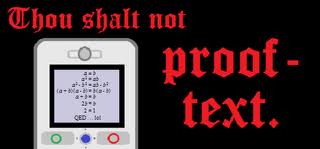Having just posted yesterday about treating the Bible as a card game, I was struck when Scot McKnight today shared quotes from an article in Relevant magazine about treating the Bible as an arms race.
The point being made is much the same. Here’s a sample:
I like to call this exercise a “Bible Verse Arms Race.” The key to winning is to pile up as many verses on your side of the argument as you can while simultaneously discounting your opponent’s verses because they aren’t reading them in the correct context or they have the original language wrong.
It’s universally understood that New Testament verses always trump the Old Testament, and Jesus’ Red Letters always trump Paul. The game is most popular among high school students, seminary students and Emergent theology bloggers. (I’ll let you draw your own ironies from there.)
This is why the Bible Verse Arms Race is not a very good way to discover Biblical truth. When two people, each with a firmly held “faith,” find as many verses as possible to uphold their belief and dismiss the others, no one leaves convinced of anything except that the other person is stubborn. (Including, I might add, an increasingly post-modern, relativist world that sees these debates as archaic and disingenuous.)…
I think Jesus offers a solution in Matthew 7:15-20, when He warns against false prophets. “A good tree cannot bear bad fruit, and a bad tree cannot bear good fruit … Thus, by their fruit you will recognize them.”
In much of our Christian culture, the evidence of “good faith” is belief in the “right answers” of Christianity, defended by a large collection of Bible Verses. Jesus’ words in Matthew 7 directly challenge this notion, as He proposes good deeds are the tangible effects of good faith.
Click through to read the rest.













